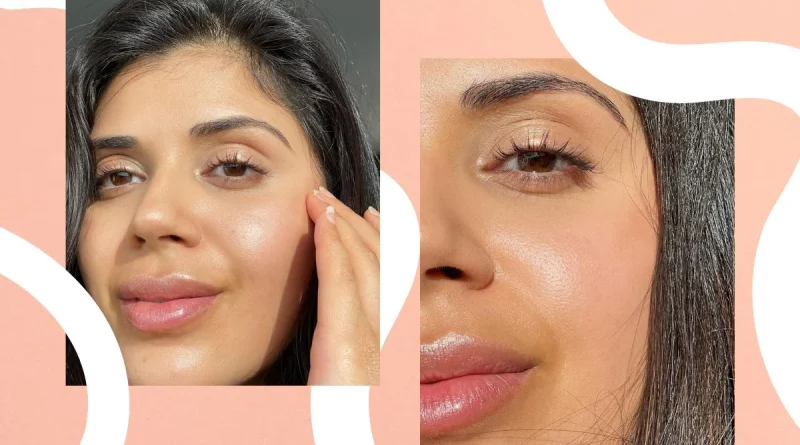Dark Spots Gotcha Down? 5 Treatments to Help
There’s no “one-size-fits-all” product when it comes to skincare. The truth is everyone’s skin is different. What works for your friend may not work for you, even if you both suffer from a similar issue, like dark spots. That’s because “dark spots” are a general term used to describe hyperpigmentation and discoloration. And the first step to treating this condition is identifying the cause of your dark spots. In this article, we break down the different causes of dark spots and treatments you should consider:
What Causes Dark Spots?
Dark spots occur when certain skin cells produce excess melanin, which provides more pigmentation to the skin than usual. Many people experience dark spots as a result of sun exposure. However, dark spots can also be caused by hormonal factors.
Melasma is one example of a skin condition that causes brown spots. Most commonly, this condition is associated with pregnancy and the correlating hormone fluctuations. They also typically appear on the face, resulting in the common nickname — “the mask of pregnancy.”
Dark spots can also be triggered by broken skin. For instance, popping or irritating a pimple could leave a dark spot. That’s why dermatologists advise people never to pick their acne, as it can cause inflammation, scarring, and, you guessed it, dark spots.
Knowing what causes your dark spots will make it easier to find a treatment that will actually help. You can focus on treating the root problem. It also helps you understand your skin better, so you can make smart skin care decisions.
1. Retinol
You’ve likely heard of retinol, especially as this ingredient has garnered a lot of attention in the beauty world recently. That’s because of its science-backed benefits. Not only is retinol used to fight against acne and signs of aging, but it can also help fade dark spots.
Retinol, which is a form of vitamin A, is beneficial against dark spots for several reasons. For one, retinol helps inhibit tyrosinase activity in your skin. Tyrosinase is an enzyme that produces melanin, which can cause dark spots.
Retinol also stimulates collagen production, giving you strong skin and an even-toned complexion. And it increases cell turnover. Meaning, regularly applying retinol speeds up your skin cycle, so you’re replacing dead skin cells (aka skin with dark spots) with healthy skin cells.
2. Gentle Exfoliants
Exfoliation is the process of removing layers of dead skin to accelerate cell renewal and promote the production of healthy cells. There are several different ways to exfoliate, from using a physical agent (like a brush) to a chemical agent (like a retinoid or peel). Both options can have a powerful impact, but it’s important to use the right exfoliant for your skin.
One problem with exfoliating is it can be too harsh for some skin types. This is especially true with physical exfoliants. If you have sensitive skin, look for gentle exfoliants that aren’t too strong or harsh. This may mean opting for a chemical exfoliant rather than a physical exfoliant.
When choosing a chemical exfoliant, look for a product that contains an exfoliating active ingredient, like an alpha hydroxy acid. AHAs, like glycolic acid, help fade the look of dark spots and other types of discoloration.
3. Laser Treatments
Laser treatments are used to treat several common skin concerns. Not only can they reduce the appearance of fine lines and wrinkles, but the right laser treatment can also fade dark spots. For example, intense pulsed light and broadband light treatments are effective at removing brown/dark spots caused by sun damage.
IPL treatments are also known as photofacials. Using light energy, this laser treatment heats up the affected areas of your skin, getting rid of unwanted skin cells. BBL treatments work similarly, sending light rays into the deepest layers of your skin to reduce the appearance of dark spots.
Both laser treatments are considered non-invasive outpatient procedures. They don’t require preparation before the treatment or after. With that said, make sure you’re working with an experienced, licensed professional. And make sure you have a consultation before your treatment to ensure the best results. There are some cases when high-energy laser treatments have exacerbated melasma.
4. Vitamin C
Is vitamin C part of your regular skincare routine? If not, it’s time to change that. There are many benefits to regularly applying vitamin C, from improving the appearance of wrinkles to treating signs of sun damage, like dark spots. Thanks to its antioxidant properties, vitamin C can also hydrate your skin and protect it from free radicals.
And good news! Vitamin C is found in many skincare products, like moisturizers, serums, and creams. It will take some trial and error to find the right product for you. Like with any skincare product, make sure you do your research before applying it to your skin. If you aren’t impressed by the reviews and ingredients, don’t be afraid to look for something else.
While dark spots are common, they can be a nuisance and cause insecurity. Thankfully, the treatments above can help you fade your spots. Once you find a treatment that works for you, start prioritizing prevention as well. By preventing sun damage and leaving any pimples alone, you can help keep dark spots from forming in the first place.




